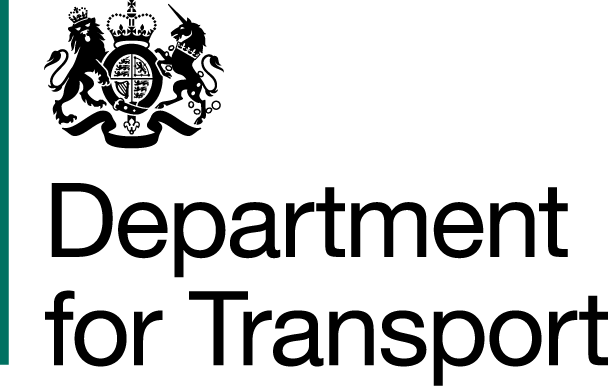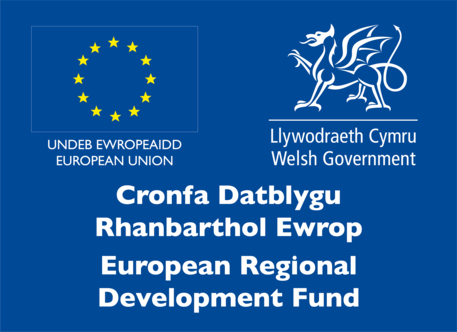TfW Rail Limited Board Minutes - 15 October 2021
TfW Rail Ltd Board minutes
15 October 2021
09:00 - 13:00
Attendees
Peter Strachan (Chair); Heather Clash; Jan Chaudhry; and Marie Daly.
In attendance: David O’Leary; Jeremy Morgan; Stephanie Raymond (item 5); and Colin Lea (item 9).
The Chair welcomed everyone to the meeting.
1a. Apologies for Absence
James Price and Alexia Course sent their apologies.
1b. Notice of Quorum
A quorum being present, the Chair welcomed everyone to the meeting and declared the meeting open.
1c. Declarations of Interest
None declared.
2a. Safety Moment
Two safety-of-the-line incidents have occurred in recent weeks involving permissive moves on Cardiff Central Platform 7 resulting in trains standing out foul of the platform. Investigations conducted by the HSEQ compliance team are currently ongoing along with: an incident review to highlight areas for improvement and key risks involved; dispatcher re-briefing on the current permissive working process; discussions with signalling team to refine the instructions that apply.
2b. Customer moment
Recent timetable changes have bedded-in with mainly weekend peaks of service identified.
3. Minutes and Actions of Previous Meeting
The minutes of the TfW Rail Board meeting 9 September 2021 were approved as a true and accurate record.
The actions log was noted with several updates to be included during the meeting.
4. Managing Director’s report
Train performance during Period 6 was mixed. Week four corresponded with September’s timetable change resulting in some initial issues which have been rectified. The Board were informed that the Class 150 fleet is spread thinly with extra mileage due to being now the only fleet route cleared north of Radyr. Class 769 availability has improved with four units required for service, rising to six later in the year. The current focus is on driving up reliability whilst warranty cover is still active. Pressure is being applied to ensure maximum unit availability.
Post Covid demand continues to recover but at a slower rate than at the beginning of the summer. Farebox revenue is now at 70.1% of the pre-Covid average (62% for National Rail), while ticketed journeys are at 60.7% (61% for National Rail). REDACTED.
Disorder, youths gathering, and workplace violence were still a problem for customer facing staff and security contractors during the period, particularly on the Rhymney Valley line. Behaviour orders have been applied to certain problematic youths and a multi-agency approach has resulted in lower levels of staff assaults. Face coverings compliance is still mandatory on public transport in Wales, but compliance has reduced.
Planning for the restoration of restaurant service has revealed several issues with the Mark 4 kitchens which are being worked through. The Board questioned whether this was a fundamental issue, or something easily fixed and requested a note from the team on what can be done and whether intelligence can be gathered from the previous owners [Action Alexia Course].
Absence levels due to Covid were variable during the period, but while infection rates in some parts of Wales were high, it did not lead to the large number of train cancellations that are being seen across other TOCs.
The resource planning tool being used for forecasting recruitment and training of drivers and conductors for all the additional training required, and the timetable uplifts that follow has identified the need to operate the training capability at “full volume” throughout 2022 to avoid falling behind on the numbers required. Stadler training simulators are being assembled. The CAF simulator is imminent.
Repairing the Adam Street bridge and reopening the lines through Queen Street that are blocked as a result remains a critical path item for the May 2022 CVL timetable changes. Amey Infrastructure Wales now has a detailed programme which would see repairs completed in April 2022. Noted that this leaves little contingency.
REDACTED
5. Management Accounts
Stephanie Raymond joined the meeting.
The Board noted the Finance Review for Rail Period 6. Operating subsidy required was £19.4m, £3.6m less than budgeted, largely due to lower net operating costs incurred as well as favourable net depreciation recorded. Passenger revenue was £8.1m, £0.5m favourable to budget as a result of continued easements in COVID-19 restrictions. Revenue is up to 70.9% of the pre COVID-19 average REDACTED. Capex subsidy required was £5.1 m, £0.1 m less than budget with in-period spend predominantly related to the introduction of new fleet and the refurbishment of existing fleet.
The Board noted the updated version of the revised budget for 2021-22 based on the Period 6 accounts. The Board approved the revised budget noting that it was an estimate of the most likely outcome for the year based on the information now available and as such dependent on revenue recovery and limited by other factors such as the ability to predict seasonal impacts.
The Board were informed that based on the revised budget, a request has been made to the Welsh Government for additional funding for 2021-22 comprising £53m to address revenue shortfalls resulting from COVID-19; and £19m of capital funding.
The Board were informed that several claims with Network Rail from 2020 remain outstanding and that claims for 2021 are increasing. Although Network Rail has provided some assurance that these will be dealt with, the need for escalation remains and a meeting with Network Rail is required to discuss matters of strategic importance. [Action Jeremy Morgan to check on status of letter to Network Rail].
The Board discussed risks around energy pricing and were informed of an existing fuel hedge in place until March 2023 which is currently working in the Company’s favour. The Board were reminded that the procurement process for CVL energy will need to commence next year, but there could be opportunity to piggy-back on existing rail industry arrangements.
Stephanie Raymond left the meeting.
6. Commercial update
The continued period-on-period growth in passenger numbers and revenue delivered in Period 6 represented the strongest periodic result achieved since the start of the COVID pandemic. The Board noted that business/commuter travel has only been restored to 32-41% of pre-COVID levels nationally, compared to leisure markets which are now back to 92% of pre-COVID levels.
There was encouraging performance delivered across multiple strategic indicators with the Smart Ticketing share continuing to grow and cost of sale continuing to fall. Unlike previous periods, cash usage has increased slightly period-on-period but remains well below pre-COVID levels.
On-Train scan rates have improved significantly in Period 6 (to 31.6%), representing the highest ever scanning level achieved on the network. Both ticketless travel (11.5%) and revenue at risk (9.2%) have reduced period-on-period, with just under £0.75m estimated to have been lost in Period 6 as a result of ticketless travel across the network.
The Board noted that CVL recovery is lagging behind the rest of the network and were informed that incentivised travel promotions are in the early stages of development.
The Board discussed the upcoming fares review. Initial discussions have been held with the Welsh Government on its policy position, but no decision has yet been made and various options are under consideration. The Board were informed that scenario modelling had been undertaken and would be shared [Action David O’Leary].
REDACTED
9. CVL rolling stock deployment options
The Board discussed issues around a reduction in capacity on some route sections when Class 769 trains currently operating Rhymney to Penarth are replaced by Class 231/756 Stadler Flirt trains. Recent analysis and modeling suggest that this will not be an issue, but various options are available if required.
The Board accepted a recommendation to extend the future Penarth to Caerphilly service to Bargoed if necessary. The Board noted this will not solve the longer-term shortfall in capacity and recognised that the option for a six-car solution; or both a six-car solution and extending the future Penarth to Caerphilly service to Bargoed are the most suitable overall solution to a future capacity issue on the Rhymney line. The Board also accepted a recommendation to reassess the issue on an annual basis upon availability of updated demand forecasts; and that further work is done to validate an ASDO/CSDE solution as a method of mitigating spend on infrastructure improvements. The Board accepted a recommendation that any options are not programmed for delivery before 2024 to avoid risk to the delivery of the CVL-Metro end-state timetable which is critical to providing sufficient capacity in 2024.
REDACTED
The Chair closed the meeting and thanked all attendees for their attendance and contributions.



